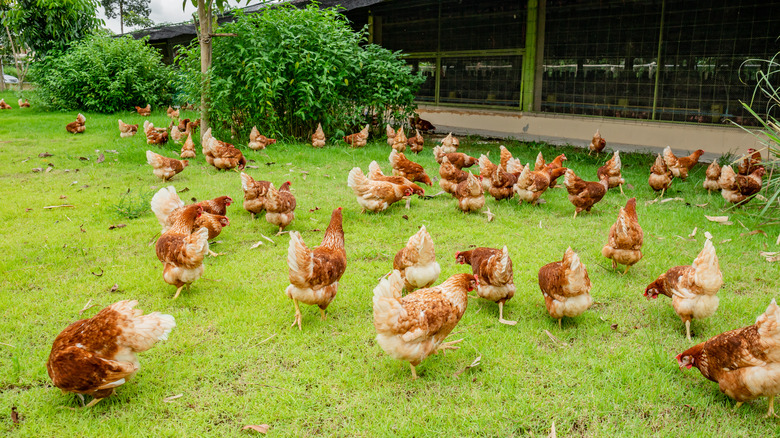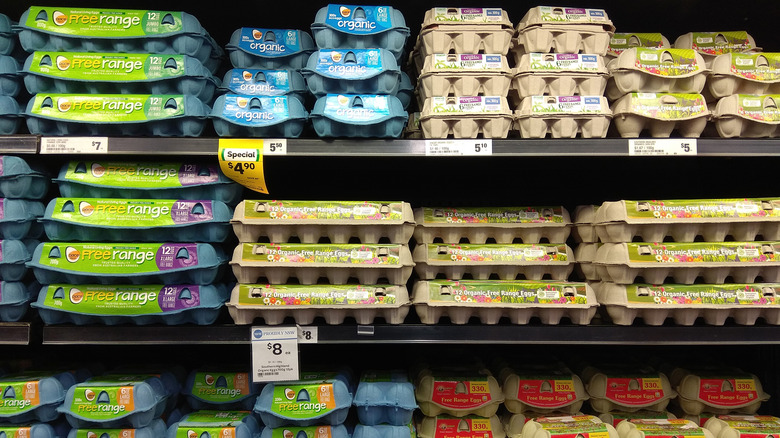Why Your Free-Range Eggs May (Temporarily) Not Be Free-Range
Chickens, they're just like us. Okay, not really, but they do have to shutter indoors during a virus outbreak, just as we did — except without Netflix. AP News reports that a recent outbreak of bird flu has killed around 28 million chickens in the U.S., forcing free-range egg farmers to temporarily keep poultry indoors in hopes of decreasing the infection rate.
Wild bird droppings are thought to be the source of the outbreak that experts hope will only last a few more weeks, as waterfowl typically migrate until June. Until then, many farmers are keeping their formerly free-range poultry in the hen house to lessen the risk of transmission.
Not all farmers believe that confining their chickens indoors is effective against transmission and infection from the bird flu. Some egg producers feel that allowing chickens to roam freely strengthens their immune systems and decreases the risk of infection by allowing for more airflow and distance between the birds and their caretakers. However, researchers haven't been able to find a notable difference between the immune system strength of free-range chickens versus indoor poultry.
How the bird flu will affect free-range egg consumers
Just like with the coronavirus, case counts in the U.K. are typically an indicator of what is coming at the United States. According to AP News, the bird flu has been circulating there for months, forcing U.K. farmers to downgrade the prized free-range label on their eggs to "barn eggs." Although the virus rarely gets humans sick, it dramatically affects the price and quality of eggs at the grocery store.
The USDA says that consumers can expect to pay 40 cents more per dozen of conventional eggs over last week. The price of organic eggs from free-range chickens recently jumped almost a whole dollar, increasing from an average of $3.65 to $4.39 in just one week, just when we thought inflation at the grocery store couldn't get any worse.
Free-range egg consumers are accustomed to paying a higher price for eggs that they feel are of higher quality, but they may have to accept eggs coming from hens that have been confined indoors as the virus continues. Farmers feel like people who prefer free-range eggs are concerned with the chicken's quality of life and will understand why producers have to keep them indoors. Hopefully, the risk will lessen in the coming weeks, and chickens can return to where the deer and the antelope play.

